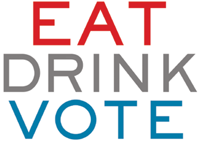Do you have the right to know what is in the food that you eat? This is the question that voters in the state of Washington will decide in this election. While the connection between politics and food is obvious in this contest, all elections have implications for the food that we eat. Why? Because the food businesses know that government action affects what they pay for their ingredients, what they may put in their food, how they may label and market their food, and where their food may be distributed. In short, government influences profits which prompts businesses to distribute their political spending so as to maximize profits.
Elections with food-related initiatives on the ballot provide a stark example of how spending affects what you eat - and how it changes in response to consumer feedback. Prop. 37 in California was one of the first major GMO labeling initiatives. In the 2012 election, the opponents of the initiative included mostly out-of-state corporations such as Monsanto, DuPont, PepsiCo and a trade association, the Grocery Manufacturers Association. These entities and others spent nearly $45 million to narrowly defeat the initiative and, in the process, outspent the initiative's supporters by nearly 5 to 1.
Fast forward to Washington's GMO labeling initiative. Two things, at least, are notable about how the opponents are spending their dollars in this election. One - On a per voter basis, they are spending at a higher rate. To-date, the opponents of I-522 have spent approximately $22 million which translates to just over $5/registered voter, which essentially doubles the roughly $2.50 spent/voter in California. (As in California, opponents are outspending supporters ... by a significant margin.) Two - The Grocery Manufacturers Association has replaced Monsanto as the largest spender. Corporations are choosing to direct their spending via the Association as opposed to spending directly. Additionally, according to an article in The Olympian newspaper, many of the opponents of the California initiative are not spending to oppose the Washington initiative. The newspaper notes the reasons vary but for some entities there is growing awareness that they risk consumer backlash if they spend to oppose this type of initiative.
The tactical changes (i.e., increased spending directed through the GMA and the decision by some opponents not to spend to oppose the initiative) are two different sides to the same coin: The food movement is becoming a more formidable foe for the food companies. Without your electoral votes as well as your purchase and consumption decisions, the tactics used by the opponents to the GMO labelling initiatives would not be changing.
As Marion Nestle points out in Eat Drink Vote, your votes matter! So, tomorrow vote with your vote!
